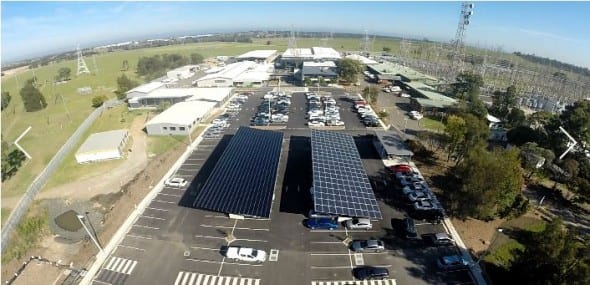And the beauty of it all, is that we need not reinvent the wheel, to do so, either. We can take advantage of the progress made elsewhere in the global power industry's renewable energy sector. Examples abound in places like the U.S., Australia, Scandinavia and Germany.
In light of that, when one hears the many negative-types amongst our nation's political class, going on and on, about the difficulties plaguing Ghana's power sector, without offering any solutions of their own, to those challenges, it takes a great deal of effort on one's part, not to resort to using derogatory language to describe their uncalled for, shortsighted negativity.
We must never despair about our nation's future. Ghana indeed has a very bright future ahead of it - for the brightest and best of its younger generation are mostly well-educated, dynamic, innovative and hardworking.
Technological advances and innovative entrepreneurs will always ensure that things will invariably improve for all of us eventually. That is why we must have abiding faith in the future of our homeland Ghana - our marvellous but sometimes irritating nation's many challenges notwithstanding.
As our widow's mite contribution to the nation-building effort, and to help raise the morale of our hard-pressed fellow citizens, begining today, this blog will post a series of culled articles from various online publications.
Hopefully, if they read those culled articles, the doom-mongering-blockheads amongst Ghana's political class, will begin to see how off-grid energy independence, made possible by advances in renewable energy storage technologies, could eventually contribute to making electricity affordable for many in Ghana.
Above all, one hopes that the executives of the Association of Ghana Industries, and the leaderships of all Ghana's political parties, will read those culled articles too - and that having read all the culled articles they will be reassured that affordable electricity is an actual possibility in Ghana in the not too distant future.
Incidentally, one hopes that when the time comes, they will all send representatives to the November 7-8 Homer international microgrid conference, to be held in NewYork City, U.S.A., this year
Participating in that all-important conference, will be an eye-opener for all of them - and perhaps inspire them to advocate for renewable energy microgrids across Ghana: as a means of lowering our country's high electricity tariff.
We must focus on renewable energy microgrids - for the benefits they will bring to many local economies across our country: especially in terms of ensuring a sustainable future for Ghana's manufacturing sector and many grassroots rural communities nationwide.
Today's culled piece, is from the online publication, RenewEconomy, and is by Giles Parkinson. It is entitled: "Transgrid's big big push into smaller grid-scale energy storage".
Please read on:
Transgrid’s big push into smaller grid-scale energy storage
By Giles Parkinson on 6 June 2016
Transgrid’s Anthony England says the company is looking to partner with commercial businesses – hardware chains, supermarkets, data centres and others – “with room for a container out the back and solar PV on their roof.
 |
| Add caption |
The idea is to deliver savings to the commercial businesses, and to the network itself. The customers will be able to do that by balancing peak and off-peak demand, and the network by using battery storage to address network bottlenecks that would otherwise require expensive infrastructure upgrades.
“We’d like to use storage to address network capacity limits – which are only hit several times year when things get tight,” England said at the Australian Energy Storage conference last week.
England suggests that it is only the start of what might be possible – if regulations allow.
“Once we get into this space, we can take learnings from the installation, the performance and the algorithms … and start to think how to unlock larger scale applications – not just to address network capital expenditure and the opportunity to defer that spending, but also to look at some edge of grid possibilities.”
This means removing towns’ electricity needs away from the network as “primary supply”. Which is not to say that towns like Broken Hill would be taken off the grid, but the opportunity for micro-grids clearly presents itself.
Transgrid is not the only network looking to install battery storage as a means to defer network spending, and make savings for both the network operators and consumers.
Ausnet is running trials on “shared solar” and one study has already concluded that savings are about equal for households and networks. South Australia is about to launch a major trial in an Adelaide suburb, to try to measure network savings; and Western Power has numerous different trials, including the latest to use solar and storage to deflect planned network spending around the WA suburb of Mandurah.
This incursion “behind the metre” and inside homes and businesses, however, is causing concern for the retailers, who fear the networks are treading on their territory.
They are pushing strongly for the regulators to reinforce the “ring fencing” guidelines and stop the networks from entering that market.
The situation is complicated, and many feel that Australia has the “wrong” type of vertical integration. While other countries favour allowing networks to be retailer and vice-versa, and feel this is the best combination in an energy system moving to decentralized energy, Australia allows retailers to be generators, but in a system moving away from centralised energy, this may become a business conflict."
End of culled RenewEconomy article by Giles Parkinson.
No comments:
Post a Comment